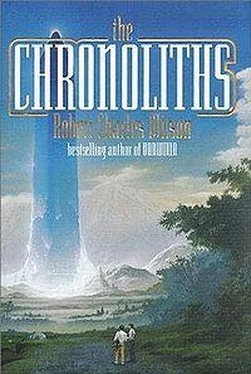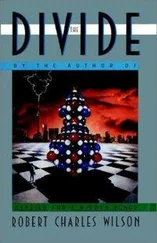Here’s the odd part. We weren’t parents or participants, just casual observers on a lazy day off, but I was on the phone to Emergency Services before anyone else in the bleachers had thought to reach into his pocket; and Ashlee, who had some RN training, reached the mound before the coach.
The injury wasn’t serious. Ash kept the boy still and calmed the terrified mother until the paramedics arrived. Nothing unusual about the incident except that Ash and I had both been so quick off the mark.
“I remember,” I told her.
“I learned something that day,” Ashlee said. “I learned we’re both ready for the worst. Always. Maybe, on some level, expecting it. Me, I guess it’s because of my dad.” Ashlee’s father had been an alcoholic, which often enough forces a child into premature adulthood, and he had died of liver cancer when Ashlee was just fifteen. “You because of your mom.” Expecting the worst: Well, yes, of course. (And her voice rang briefly in my head: Scotty, stop looking at me like that!)
“What that tells me,” Ashlee said, choosing her words carefully, not meeting my eyes, “is that we’re pretty strong people. We’ve faced up to some difficult things.”
Difficult as a murderous child, resurrected from the dead?
“So it’s all right,” Ashlee said. “I trust you, Scott. To do what you think is right. You don’t have to break it to me gently. You’re going away with them, aren’t you?”
“Just for a little while,” I said.
We crossed the state border into Wyoming on the day the governor abdicated.
One of the so-called Omega militias had occupied the legislature for most of a week, holding Governor Atherton among the sixty hostages. The National Guard finally cleared the building but Atherton resigned as soon as he was released, citing health reasons. (Good ones: He had been shot through the groin and the wound had been allowed to grow septic.)
Emotions ran high, in other words, out here in big sky country, but all that political ferment was invisible from the road. Where we crossed into the state, the highway was potholed and the vast ranchlands on either side had gone feral and dry in the wake of the retreating Oglalla Aquifer. Flocks of starlings populated the rusted ribs of irrigation piping.
“Part of the problem,” Sue was saying, “is that people see the Chronoliths as a kind of magic — but they’re not, they’re technology, and they act like technology.”
She had been talking about the Chronoliths for at least five hours, though not exclusively to me. Sue insisted on driving the last van in the convoy, which contained our personal effects and her notes and plans. We — Hitch or Ray or I — tended to rotate through the passenger seat. Sue had added a kind of nervous loquaciousness to her customary obsessive behavior. She had to be reminded to eat.
“Magic is unlimited,” she said, “or limited only by, allegedly, the skill of the practitioner or the whims of the supernatural world. But the limits on the Chronoliths are imposed by nature, and they’re very strict and perfectly calculable. Kuin broadcasts his monuments roughly twenty years into the past because that’s the point at which the practical barriers become insurmountable — any farther back and the energy requirements go logarithmic, shoot up toward infinity for even a very tiny mass.”
Our convoy consisted of eight large enclosed military cargo trucks and twice that number of vans and personnel carriers. Sue had put together, over the years, a small army of like-minded individuals — in particular the academics and grad students who had assembled the tau-intervention gear — and they were bookended, in this expedition, by the military posse. All these vehicles had been painted Uniforces blue so that we would resemble any number of other military convoys, a common-enough sight even on these underpopulated western highways.
Some miles past the border we pulled over to the margin of the road on a cue from the lead truck, lining up for gas at a lonely little Sunshine Volatiles station. Sue switched off the forced-air cooler and I rolled down a side window. The sky was boundless blue, marked here and there with wisps of high cloud. The sun was near zenith. Across a brown meadow, more sparrows swirled over an ancient rust-brown oil derrick. The air smelled of heat and dust.
“There are all kinds of limits on the Chronoliths,” Sue went on, her voice a sleepy drone. “Mass, for instance, or more precisely mass- equivalency , given that the stuff they’re made of isn’t conventional matter. You know there’s never been a Chronolith with a mass-equivalency greater than roughly two hundred metric tonnes? Not for lack of ambition on Kuin’s part, I’m sure. He’d build them to the moon if he thought he could. But again, past a certain point, the energy bill shoots up exponentially. Stability suffers, too. Secondary effects become more prominent. Do you know what would happen to a Chronolith, Scotty, if it was even a fraction over the theoretical mass limit?”
I said I did not.
“It would become unstable and destroy itself. Probably in a spectacular fashion. Its Calabi-Yau geometry would just sort of unfold . In practical terms, that would be catastrophic.”
But Kuin had not been so unwise as to allow that to happen. Kuin, I reflected, had been pretty savvy all along. And this did not bode well for our quixotic little voyage into the sun-ridden western lands.
“I could use a Coke,” Sue said abruptly. “I’m dry as a bone. Would you fetch me a Coke from the gas station, if they have any to sell?”
I nodded and climbed out of the van onto the pebbly margin of the road and walked up past the row of idling trucks toward the Sunshine depot. The fuel station was a lonely outpost, an old geodesic half dome shading a convenience store and a row of rust-spackled holding tanks. The tarmac was lined with miniature windrows of loose dirt. An old man stood in the doorway, shading his eyes with his hand and looking down the long row of vehicles. This was probably more custom than he had seen in the last two weeks. But he didn’t look particularly happy about it.
Automated service modules groped under the carriage of the lead truck, refueling and cleaning it. Charges were displayed on a big overhead panel, its lens gone opaque in the wash of sun and grit.
“Hey,” I said. “Looks like it hasn’t rained around here for a while.”
The gas-station attendant lowered his hand from his eyes and gazed at me obliquely. “Not since May,” he said.
“You got any cold drinks in there?”
He shrugged. “Soda pop. Some.”
“Can I have a look?”
He moved out of the doorway. “It’s your money.”
The interior shade seemed almost frigid after the raw heat of the day. There wasn’t much stock on the store’s shelves. The cooler held a few Cokes, root beers, orange pop. I selected three cans at random.
The attendant rang up the sale, peering at my forehead so intently that I began to feel branded. “Something wrong?” I asked him.
“Just checking for the Number.”
“Number?”
“Of the Beast,” he said, and pointed to a bumper sticker he had attached to the front of the checkout desk: I’M READY FOR THE RAPTURE! HOW ABOUT YOU?
“I guess all I’m ready for,” I said, “is a cold drink.”
“What I figured.”
He followed me out of the store and squinted down the line of trucks. “Looks like the circus came to town.” He spat absentmindedly into the dust.
“Is there a key to the toilet?”
“On the hook around the side.” He hooked a thumb to the left. “Show some mercy and flush when you’re done.”
Читать дальше












